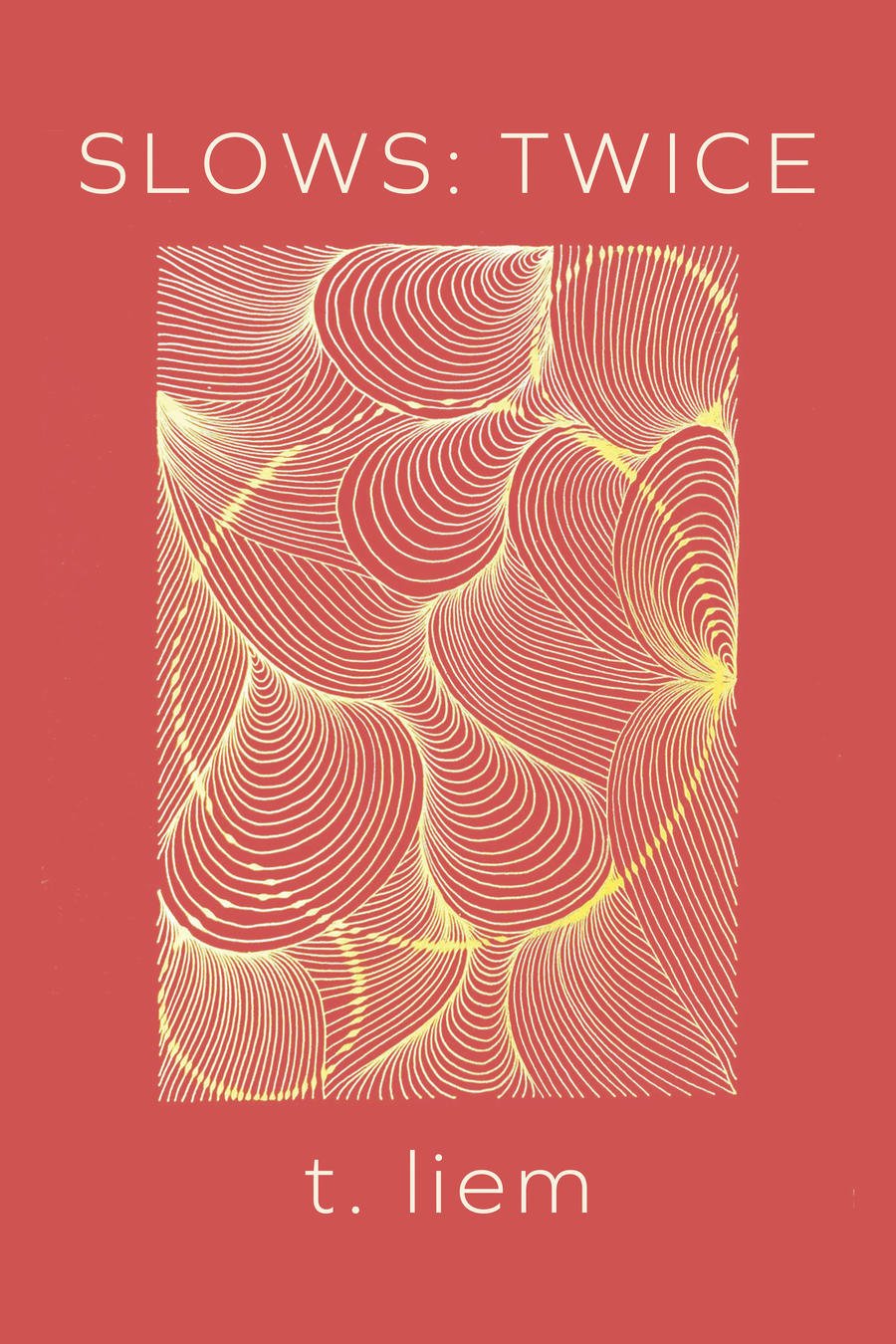A Mode of Reflection: Interview with T. Liem
T. Liem is the author of Slows: Twice (Coach House 2023), and Obits. (Coach House, 2018), which was shortlisted for a Lambda Literary Award, and won the Gerald Lampert Memorial Award as well as the A.M. Klein Prize. Their writing has been published in Apogee, Plenitude, The Boston Review, Grain, Maisonneuve, Catapult, The Malahat Review, The Fiddlehead, and elsewhere. They live in Montreal, Tio’Tia:ke, unceded Kanien’kehá:ka territories.
T. is the judge of our 2023 Priscila Uppal Memorial Award for Poetry. In this interview, Digital Content Editor Manahil Bandukwala talks to T. about Slows: Twice, as well as what they look for in a winning poem.
Manahil: Congratulations on the publication of Slows: Twice! This is your second collection of poetry. What have you found has been different in publishing this time around?
I’ve had the joy of taking a workshop with you, where you approached my (and other participants) writing with a specific kind of care and tenderness. How do you bring this to your own writing?
T.: It is so encouraging to know you had that experience – thank you for saying so! Your question almost strikes me as advice since I have a difficult time harnessing that kind of attitude toward my own writing and practice. I’m hard on myself, which is good for editing but makes getting to any kind of first draft nearly impossible. But I write to find connection with others, and I think I can find glimpses of this kind of care for myself when I know someone else will actually read whatever it is I’m trying to express.
T. Liem, Slows Twice.
Coach House Books, 2023. $23.95 CAD.
Order a copy from Coach House Books.
Manahil: How did the mirroring that appears in Slows: Twice come about?
T.: One way that it started was as a solution to a rut. I had a handful of poems, which make up a lot of the first half of Slows, but I wasn’t sure about those poems anymore. Everything I’d written was feeling tired and almost embarrassing to revisit. I started re-writing what I had backwards, beginning with the last line and tracing whatever arc emerged from a recycled vocabulary. This became a mode of reflection and then a concept that allowed me to honour what I had once written and thought while also revising it, to see what happens when we repeat ourselves, how language changes and changes us. It is also just a kind of tick I have, to repeat myself. I get certain phrases stuck in my head like songs, and on a practical level, I speak quietly so often I have to say things twice to be heard.
Manahil: Is there something in your life, writing or otherwise, that has surprised you lately?
T.: One thing I started doing with my partner this year is playing tennis. We biked up to a free court on the rare days when temperature, air quality, and our energy lined up. It’s surprising to me how fun it is to be like a dog and chase a ball around, how this can quiet down my very noisy mind. It’s not a revelation in and of itself, I guess people know this already about sports, but it’s been a relief from my typical hang-ups about productivity that I didn’t know I could access. So much so that I’m not even tempted to write about it!
Manahil: What are you looking for in a winning poem?
T.: This is a difficult question, or I’m about to be difficult in answering. Poems that leave me changed or in a state of wonder, poems that make me feel suspended within them—they achieve this in so many different ways. I have preferences, favourite poems and poets, but in this role I’m reluctant to try to pin them down and I’m ready to be surprised. I think every poem has a central element driving it, whether that be the speaker’s voice, a particular set of images, a line break that cracks the poem open, a strange prosody or twisting language, an unsettling way of framing an idea, a striking layout on the page—any of these things can catch my attention.


